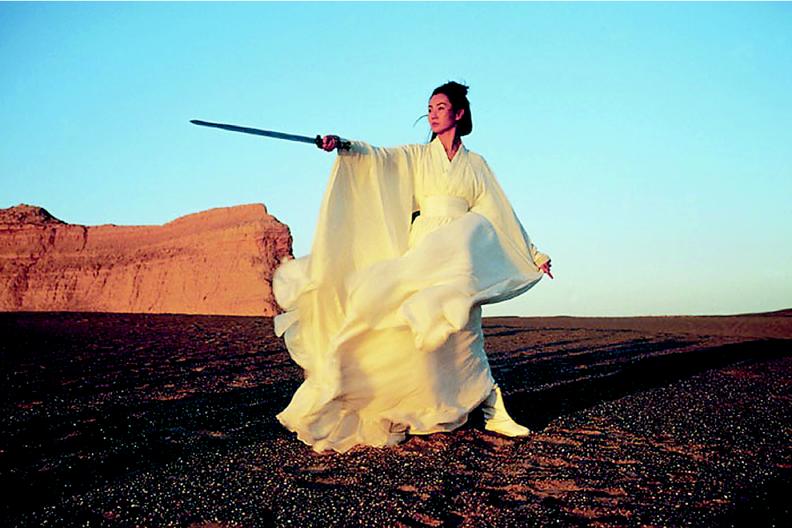Still, it's all water under the bridge at this point. The film is coming to theaters, and you need to see it.
Directed by Zhang Yimou (Raise the Red Lantern, The Story of Qiu Ju, To Live, Not One Less), this epic historical action/drama/romance is the most expensive film ever produced in China (still a modest-by-American-standards $30 million). The simple story concerns a nameless government official named, well, “Nameless” (Jet Li from Romeo Must Die, Fist of Legend, Once Upon a Time in China), who pays a visit to the king of China's Qin province.
The king is a ruthless warlord, seeking to unify ancient China's seven warring kingdoms under one iron fist. Naturally, he's plagued by unending assassination attempts. His most dangerous enemies are a trio of seemingly unstoppable assassins known as Long Sky (Donnie Yen from Iron Monkey), Flying Snow (Maggie Cheung from In The Mood For Love) and Broken Sword (Tony Leung from Hard-Boiled). Miraculously, Nameless has just defeated all three of them. His stunning bravery has earned him an audience with the king, where he recounts in flashback how all three were killed in mortal combat. Nameless' stories, covering a series of fantastical one-on-one clashes, make up the bulk of this brief film.
Over the course of Nameless' narrative, however, the king begins to doubt certain facts. Subtle shifts in perspective and the repetition of certain scenes give the film a subtle, Rashomon-like feel. The real attraction of the film, though, is Yimou's stunning direction.
Hero is, hands-down, the most beautiful martial arts film ever shot. Newcomers, who were introduced to the genre with Crouching Tiger, Hidden Dragon, will be broadsided by the film's lush color palate and balletic swordplay. Hero is certainly aiming for the same art house audience as Crouching Tiger, but features a tighter story line and even more indelible imagery (clouds of arrows raining from the sky, colossal armies marching in symmetrical unity, duelists skipping across the surface of a lake.) By the same token, kung fu fans looking for straight-ahead action could be bored by the film's arty pacing and high-flying, gravity-mocking wirework. The cast does spend a lot of time pausing and posing for pretty pictures, which audiences will either find achingly beautiful or just plain dull.
Even harder for western audiences may be the film's moral, a tough-to-digest take on the idea of heroism and sacrifice. It makes perfect sense for a Chinese film, but the philosophy behind it probably won't sit well with those who didn't grow up reading Chairman Mao's little red book. Still, a martial arts movie that inspires a little political debate isn't such a bad thing.
With its eye-dazzling cinematography, head-spinning swordplay and heart-breaking romance, Hero is an operatic tour de force, a historical fantasy that will lodge in the eyes and minds of viewers for ages to come.



